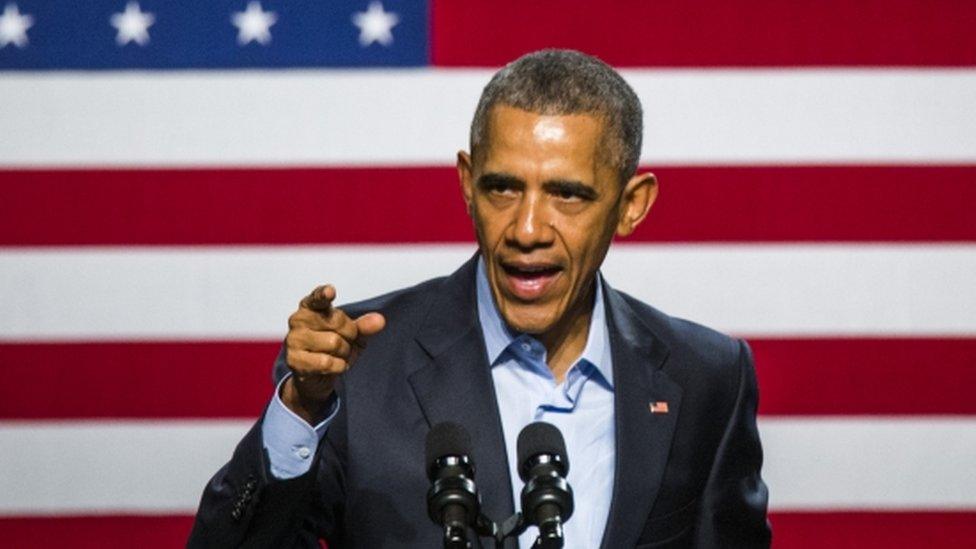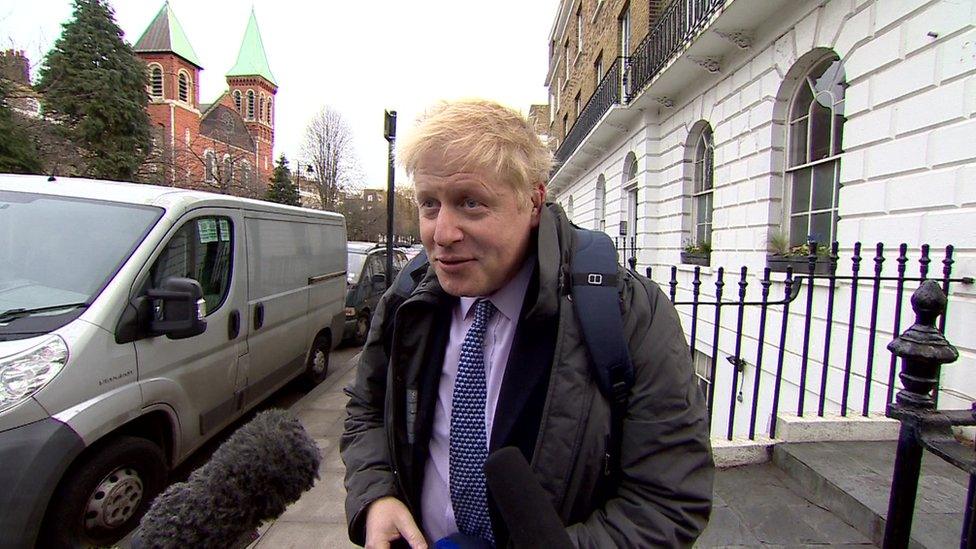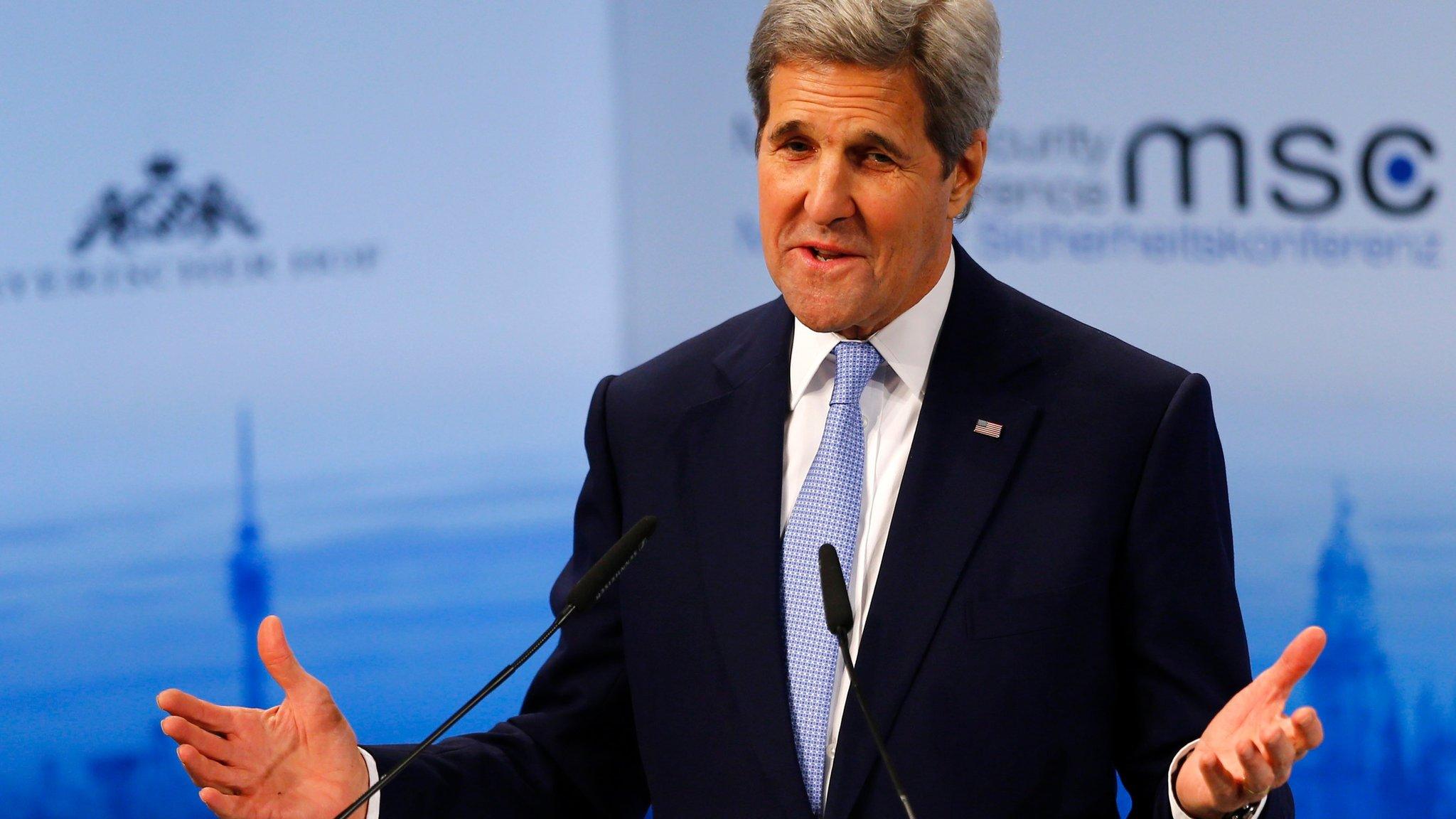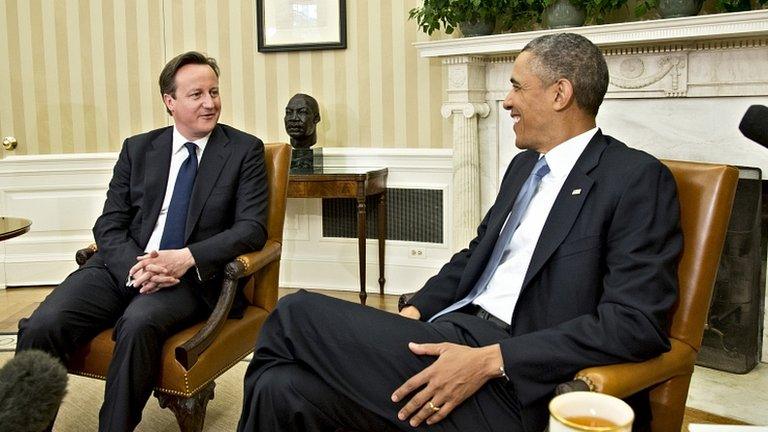Boris Johnson urges Obama not to intervene in EU debate
- Published
Boris Johnson: "It is peculiar that the United States should be urging the UK to give up more powers"
Boris Johnson has said it would be "outrageous hypocrisy" for US President Barack Obama to intervene directly in the EU referendum debate.
Mr Obama, who wants the UK to stay in the EU, is expected to visit the UK for the last time as President next month.
The London mayor wrote that it would be "wholly fallacious" of Mr Obama to use any trip to warn that the UK will lose global influence if it quits the EU.
Downing Street said Mr Obama and other leaders were "worth listening to".
And a White House spokesman said it would continue to argue it "deeply values a strong ally in the United Kingdom as part of the European Union".
There have been unconfirmed reports Mr Obama will visit the UK in April in what would likely be his last visit before his term in office ends in January.
'Clear view'
In his regular column for the Daily Telegraph, external, Mr Johnson - who is campaigning to leave the EU ahead of the vote on 23 June - said it would be wrong of the US president to use the visit to argue for the UK's continued EU membership.
He wrote that President Obama would arrive to the UK "sometime in the next couple of months" and "pronounce on the matter".
"The British people will be told to be good to themselves, to do the right thing," he wrote.

Barack Obama has said the EU would be stronger with the UK's continued presence
"We will be informed by our most important ally that it is in our interests to stay in the EU, no matter how flawed we may feel that organisation to be. Never mind the loss of sovereignty; never mind the expense and the bureaucracy and the uncontrolled immigration.
"The American view is very clear."
He said it was "paradoxical" for the US to support a political union to which countries such as the UK ceded powers, when it defended its own sovereignty with "hysterical vigilance".
The Americans, he said, were "urging us down a course they would never dream of going themselves", making the point that the North Atlantic Free Trade Agreement which the US negotiated with Mexico and Canada in the 1990s was a pure trade deal without any degree of political integration, such as a EU style court, commission or Parliament.
The EU, he added, was not suited to becoming a United States of Europe - as some in Washington hope - because it lacks a single culture, language or allegiance.
'Transatlantic union'
In a BBC interview last year, Mr Obama said the UK must stay in the EU to continue to have influence on the world stage.
He said the UK's EU membership "gives us much greater confidence about the strength of the transatlantic union".
While making his point in "typically colourful language", the BBC's assistant political editor Norman Smith said Mr Johnson's remarks would also serve to underline the apparent lack of support for Brexit - not just in the White House - but more generally among world leaders.
No 10 said the UK's future in the EU was a decision for the British people but the views of international allies should be heeded. "These are people who wish Britain well and they are worth listening to," a spokesman said.
Foreign Secretary Philip Hammond said it was important the public knew what other members of the Commonwealth felt as well as global powers such as the US and China.
Roland Rudd, treasurer of Britain Stronger in Europe, says Boris "changed his mind" on EU membership
"Let's just hear how much they actually value Britain's membership …just so the British people are properly informed in this debate and not deceived by some of the suggestions they are hearing about the welcome that might be awaiting us if we leave the EU from our English speaking partners."
Mr Johnson, meanwhile, is facing fresh claims that he changed his mind over EU membership at the last minute.
Roland Rudd, treasurer of the pro-EU Britain Stronger In Europe campaign, told BBC Radio 5 Live's Pienaar's Politics on Sunday that it was "absolutely clear" from their conversations that Mr Johnson backed EU membership but had changed his views "over a weekend."
Mr Johnson has denied his decision was anything to do with leadership ambitions, saying the UK would be better off outside the EU which "costs us a huge amount of money and subverts our democracy".
- Published8 March 2016

- Published13 February 2016

- Published13 May 2013
